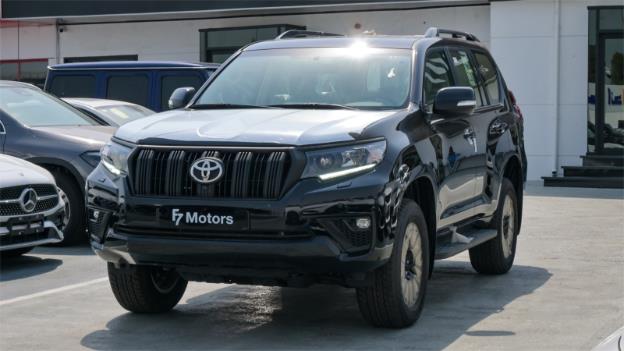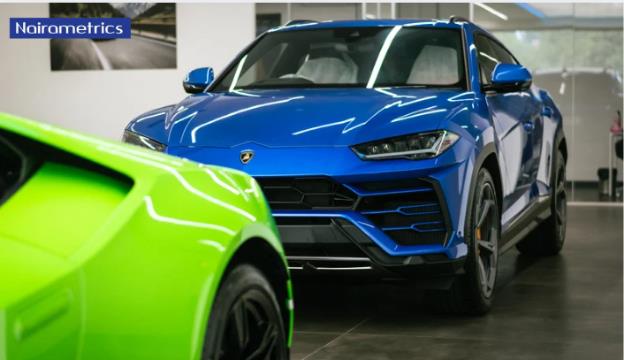In 2024, Nigeria’s auto market adjusted to a new reality.
Following months of foreign exchange volatility and tightening import regulations, buyers recalibrated their priorities.
Affordability, fuel efficiency, and reliability took precedence over badge prestige. Even among wealthier customers, value retention and cost of ownership began to influence decisions in ways rarely seen before.
According to the latest foreign trade report from the National Bureau of Statistics (NBS), the total value of passenger car imports dropped by 14.3% to N1.26 trillion, down from N1.47 trillion in 2023.
The decline came on the heels of a dramatic spike in 2023, when vehicle importation had more than doubled compared to 2022. By 2024, the market had cooled, and both consumers and importers recalibrated.
In this article, we take a look at the best-selling vehicles of 2024, offering a snapshot of how middle- and upper-income Nigerians adapted to economic pressures, what corporate buyers prioritized, and why certain models consistently moved off lots while others sat unsold.
Below is a breakdown of the models that dominated the Nigerian market and the average price tags they carried

- Price: N125 million to N150 million
The Toyota Prado has long held its place as a symbol of power, prestige, and practicality in Nigeria’s SUV market. Its rugged build, elevated ground clearance, and proven off-road capability make it a top pick for government officials, corporate executives, and high-net-worth individuals who need a vehicle that can perform just as well in city traffic as it does on untarred roads.
Built on the same dependable foundation as other Land Cruiser models, the Prado is valued for its reliability, comfort, and longevity. It handles Nigeria’s varied terrain with ease, from urban potholes to remote, rugged areas. Its spacious interior, fuel efficiency for its class, and strong resale value further reinforce its appeal.
What Car Dealers said
With brand-new models priced out of reach for many, Nigerians turned to more practical options: fuel-efficient sedans, reliable SUVs, and durable foreign-used vehicles that offered value and longevity. Dealers reported that middle-class buyers, first-time vehicle owners, and even corporate clients shifted focus toward cost-saving models, including tokunbo and pre-owned units.
To better understand which cars captured the Nigerian market this year, Nairametrics spoke with dealership owners while also reviewing consumer behavior trends across various income groups. Their insights reveal more than just a list of popular models.
Speaking to Nairametrics, Esu Bassey-Duke, CEO of Stock Motorcars Limited, highlighted that vehicle demand is increasingly segmented by socioeconomic class. “It depends on the market segment you are targeting,” he explained. “For the low- to middle-income group, price, durability, fuel efficiency, and vehicle history are top priorities. Meanwhile, the upper class focuses more on vehicle history, durability, price, and fuel, but with luxury brands in mind.”
Bassey-Duke noted that despite maintaining a diverse inventory, some models that check these boxes “tend not to age in stock” due to consistent turnover. His company typically keeps a minimum of five units per high-demand model.
Reflecting on 2024, Bassey-Duke said that currency volatility played a major role in dampening sales. “It did affect demand, especially in 2024. But with the seeming stability in the FX market, sales are better in 2025,” he said.
Used cars, in particular, are seeing renewed interest from first-time buyers and the middle class. “People are switching to locally used instead of foreign used vehicles. Prices went up almost 300% last year, so now that FX is more stable, people feel more confident making purchase decisions.”
This trend is echoed by Ojomon Ibhade, CEO of Oj and Ella Motors Limited, who serves a primarily corporate clientele. “Most people want reliability first and fuel efficiency. But those with deep pockets still prefer luxury Lexus, Range Rover, Mercedes-Benz,” Ibhade said. “Among those, Lexus remains number one for reliability, durability, and resale value.”
However, even corporate clients are adjusting. “I supply banks and reputable companies. Managers used to get brand-new Corollas as official vehicles. But with sedans now costing up to N50 million, many companies are opting for tokunbo or pre-owned cars that still meet their internal standards,” he explained.
Ibhade also pointed to FX-driven inflation in import and clearing costs. “Currency fluctuations and import policy changes have increased the capital needed to import vehicles and significantly raised clearing costs. But it’s still a seller’s market; those increases are being passed on to buyers.”
On the financing front, both dealers acknowledged shifts. Bassey-Duke emphasized that many retail buyers continue to purchase outright, particularly with cheaper used cars.
Ibhade added that his company favors full payments as a hedge against currency swings. “Full payment is our focus; it protects us from FX vagaries. But fintech firms and traditional lenders are still offering loans, especially for buyers who can’t cover the full cost upfront.”
Notwithstanding, Gbadamosi Opeyemi, another car dealer, explained to Nairametrics that he had sold over “46 units of cars like the Toyota Prado 2024, Toyota Land Cruiser 2024, and Lexus. I also noticed that first-time buyers usually tilted towards Nigerian used vehicles and paid attention to more rugged models due to the poor road networks we have in Nigeria. More experienced buyers opted for Tokunbo vehicles due to the ruggedness of their engines”.
Though the luxury segment retained its foothold among high-net-worth individuals with Lexus, Mercedes-Benz, and Range Rover remaining in demand, mainstream buyers drove the bulk of sales. Toyota models stood out for their balance of affordability and durability, making them a top choice in both private and corporate sectors.















I think you are talking about new cars and should have pointed it out.
Cos when it comes to new & used, no cars pushed through the doors like Corolla (2003 – 2024) & Honda Accord (2013 – 2021).
I saw a post on X that concurred.
https://x.com/autocareplusng/status/1943945135198228920?t=i5wtLFGnFPnXwGuDHHNxPQ&s=19